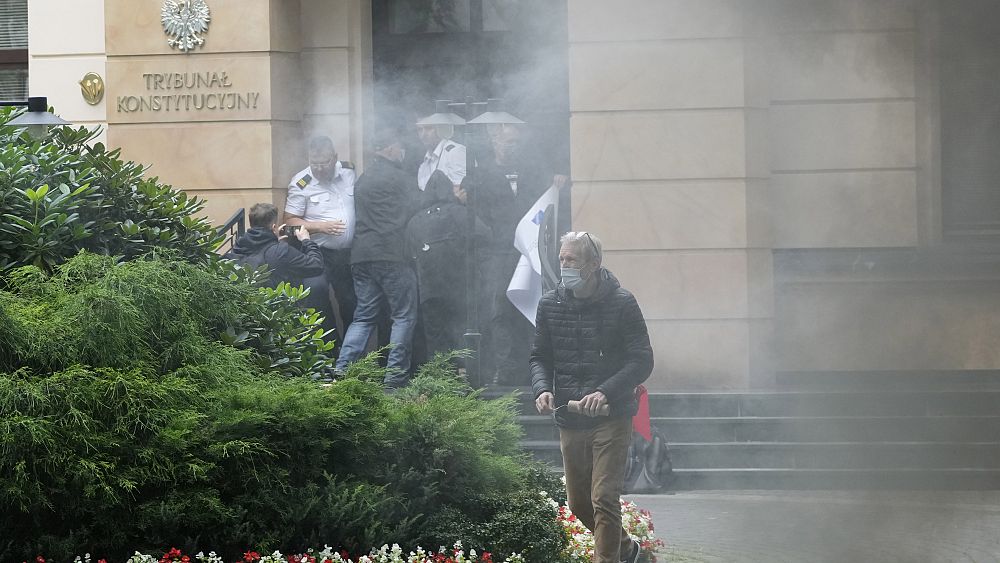
Judges of Poland’s Constitutional Tribunal are due to convene on Tuesday to decide which has primacy — the Polish constitution or the law of the European Union.
The ruling is seen as critical to the country’s future relationship with the rest of the bloc.
Poland’s prime minister had asked the court — dominated by ruling party loyalists — to make the judgment amid a larger conflict over systematic changes to the court system in Poland, which the EU views as a violation of democratic norms.
If the court rules against the Polish government, the EU Court of Justice will be able to force the country to suspend part of its judicial reforms. The opposite will mean Poland can either amend its Constitution, seek to amend EU law or even withdraw from the bloc.
On the eve of the ruling, pro-democracy activists entered the grounds of the court on Monday in an act of civil disobedience.
They say they fear that if the court rules that Polish law has primacy over EU law, it would mark another step away from Western Europe.
Opponents also say they do not consider the court legitimate after Poland’s ruling conservative party illegally appointed three new judges soon after it won power in 2015.
Human Rights groups have accused Poland’s government of tightening its control over the judiciary and media, as well as restricting reproductive rights for women and targeting LGBT people with harsh rhetoric.
The ruling party says its changes to the court, which have been opposed by EU institutions, are meant to fight corruption by judges and make the court system more efficient.
Polish justice minister, Zbigniew Ziobro, said last week that the EU’s criticism amounts to “hybrid warfare” against the Polish legal system.
European Commission vice-president for values and transparency Vera Jourová met with Polish officials on Monday, emphasising their “dialogue on rule of law” while insisting that “the rulings of the European Court of Justice must be fully respected.”
But Jourová’s tweet drew criticism from EU law experts.
“Dialogue with autocrats doesn’t work,” wrote R. Daniel Kelemen, a Professor of Political Science and Law and Jean Monnet Chair in European Union Politics at Rutgers University.
“They just use the extra time to speed up their destruction for democracy and rule of law and laugh at the weakness of the European Commission.”